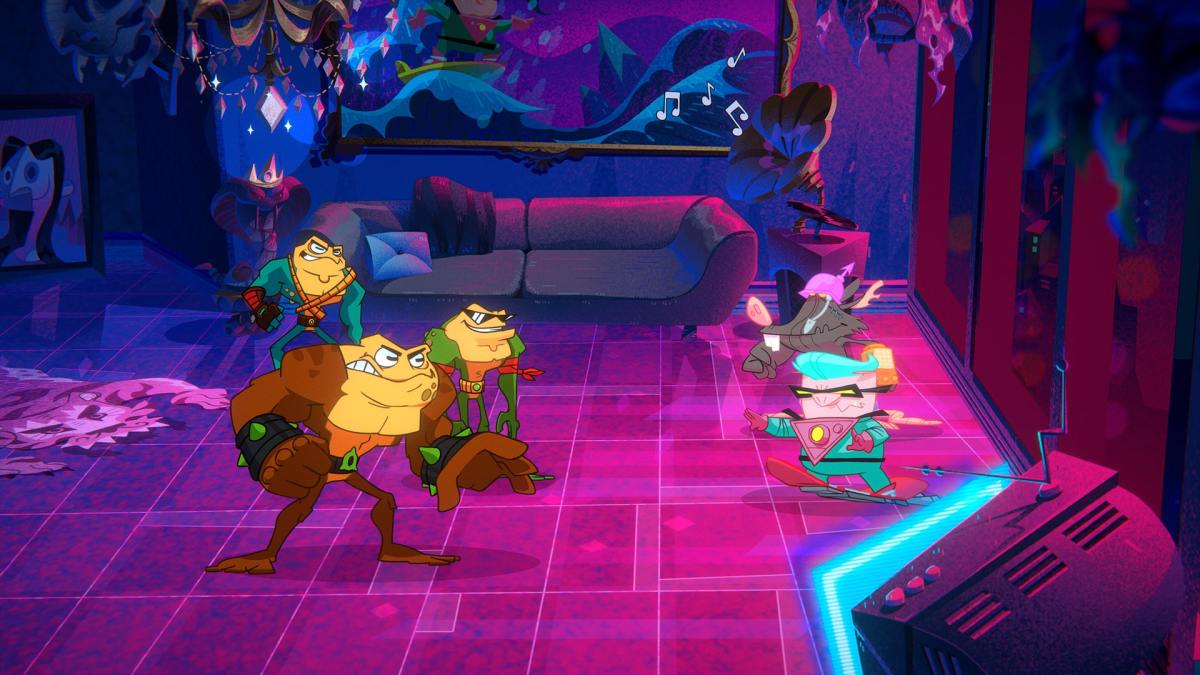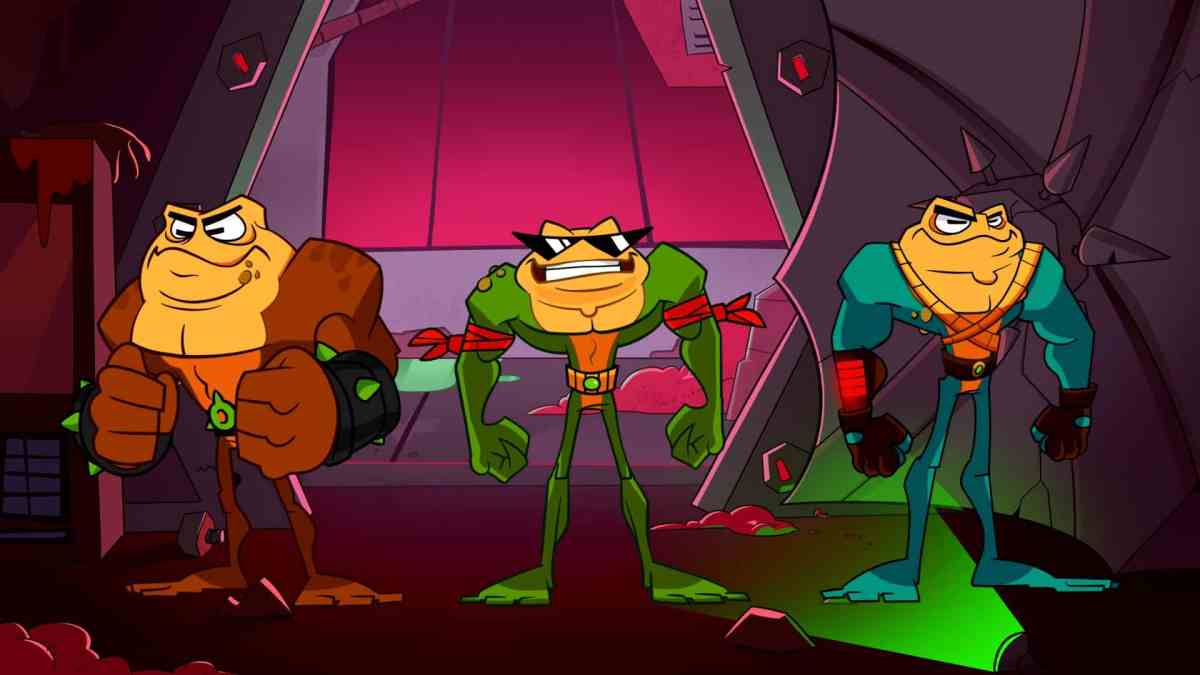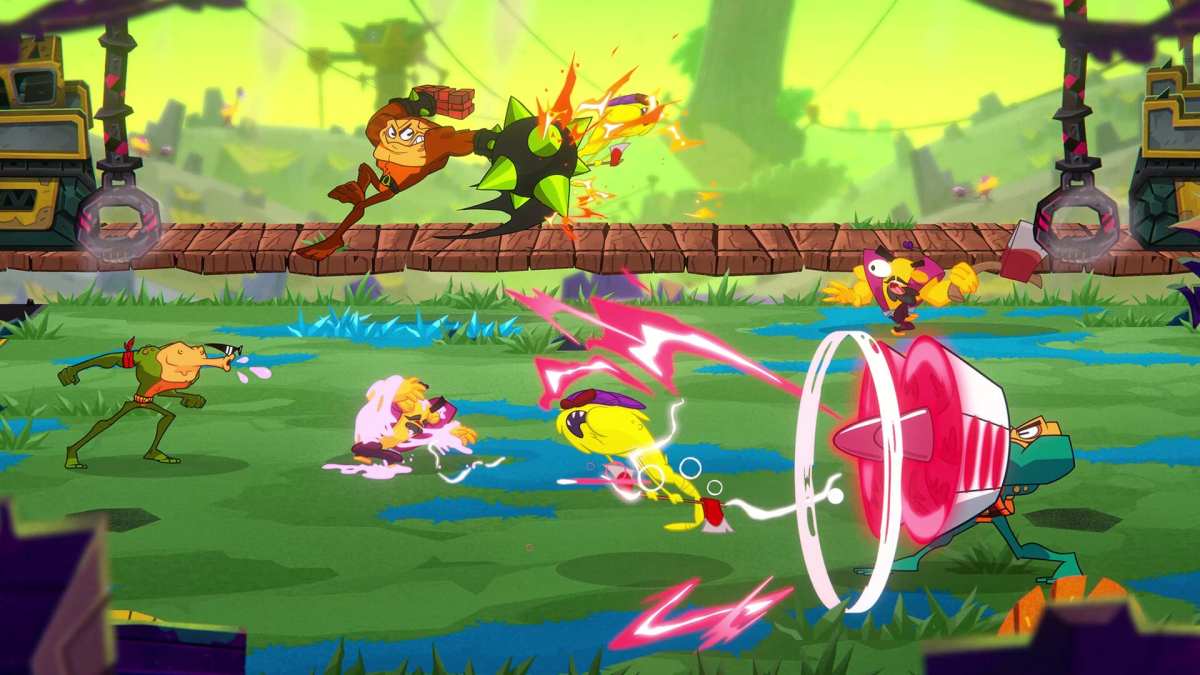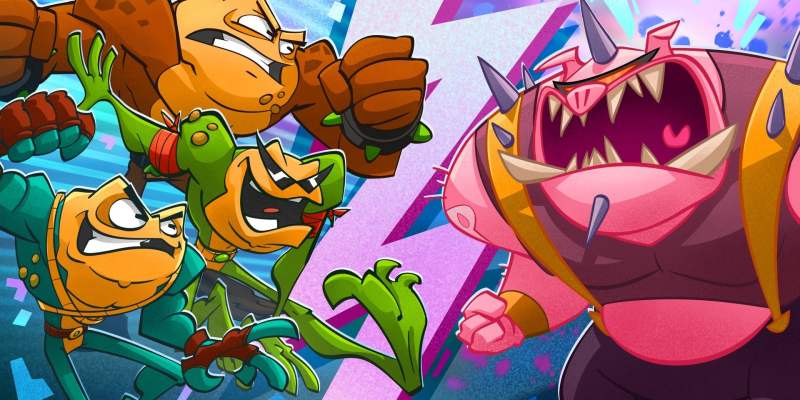If there was one thing I could’ve predicted about 2020, it would’ve been that I would absolutely despise the new Battletoads game from Dlala Studios and Rare. It’s one of the few franchises that I’ve actively disliked for about as long as I’ve been playing video games, which is saying a lot because most kids can find enjoyment out of anything you put in front of them. Every element of the original beat-’em-ups — from the garish art, to try-hard tone, to the difficulty spikes that always felt unfair — left a bad taste in my mouth for nearly three decades. So there was no way that this modern reboot would change my opinion.
Aside from the aforementioned reasons, one of the big things that I disliked was that it came from the folks at Rare, who created so many of my most memorable video game experiences. From the platforming excellence of the Donkey Kong Country trilogy on SNES, to the countless hours spent on GoldenEye 007 and Perfect Dark multiplayer on the Nintendo 64, to strange and beautiful one-off experiments like Blast Corps and Jet Force Gemini, and even into the bright and energetic Xbox franchises like Viva Piñata and Sea of Thieves, the U.K. studio has been near and dear to me for decades. And that’s not even mentioning Banjo-Kazooie, which remains one of my absolute favorite games to this day. So yeah, Battletoads previously stood as the one major blemish on their record in my eyes.
But here I sit, fully embraced in 2020’s running theme of unpredictability, and I can safely and honestly admit that I had a fantastic time playing through Battletoads on Xbox One. Not only is it a brisk, entertaining beat-’em-up that calls back to some of the arcade highlights of the ‘90s, but its writing and performances exude a genuinely funny and frenzied energy akin to a Saturday morning cartoon, only punctuated by the episodic title cards that precede every chapter. In that sense, the entire game feels like a cereal mascot-induced sugar rush, which is the exact right tone that this thing needed to succeed as a reboot.

One of the first things that stood out to me about Battletoads 2020 was just how self-aware it was. Right from the very first level, and the reveal that the heroic trio had been trapped inside a VR simulation for the past few decades, it was clear that the developers were not only in on the joke, but more than willing to direct the punchlines at themselves. They’re aware of how silly the very concept of the game and its characters are, and they embrace it with love and reverence.
It’s this that makes this iteration of the Battletoads not only tolerable, but downright likable. The script is quick and punchy, the voice cast leans into the absurdity of it all, and the animated vignettes that appear between most levels make it feel like you’re watching a scene from Clone High or Rick and Morty.
The actual beat-’em-up gameplay feels good, if not familiar. Swapping among Zitz, Rash, and Pimple (still gross names) on the fly — each of whom has his own strengths, weaknesses, and move sets — keeps the momentum up when you’re playing through solo. But like any classic arcade game of this genre, the real fun is found when three players roll through the campaign together, with Battletoads’ much-appreciated couch co-op.

While the difficulty in some of the minigames spikes with the chaos of three players, the game is kind of built around enjoying that chaos. And the trio of difficulty levels means that anyone can make it through the campaign on easy, or you can crank it up to hard for that classic ‘90s kind of punishment. That said, the absence of online play in 2020 is definitely a bit strange and something I would’ve expected the game to have at launch.
Battletoads makes the most of its three-hour duration by constantly throwing new and unique gameplay situations at you. After most traditional side-scroller beat-’em-up stages, you’re tossed into a gimmicky scenario that ranges from a modernized version of the infamous Turbo Tunnel bike levels of the original, to minigames that span all sorts of strange genres. One moment you’ll be trying to contort your body as reference for a sculptor making a trophy, and the next you’ll have to parse through a dozen different control panels on a spaceship that feels like a distilled, single-player version of Keep Talking and Nobody Explodes. The new gameplay wrinkles come fast and loose, so I never found myself growing tired of any one section before the next one came hurtling through.

The icing on the cake here is that Battletoads falls under the Xbox Game Studios umbrella, which means it was free on Game Pass right from the get-go. I know that many people are starting to tune out Game Pass evangelists like myself, but over the past month, I’ve played through and thoroughly enjoyed Battletoads, Carrion, and Spiritfarer all thanks to the service. Games I thought I might just try out for a few minutes ended up grabbing me until I rolled credits on them. Like any service that grants “free” games, Game Pass is ultimately a business strategy from Microsoft, not some act of altruism. But if it’s a business strategy that highlights games like the three I just mentioned, then it’s one that I can absolutely get behind.
I think the highest compliment I can pay to Battletoads is that as the credits rolled, I was fully on board for a sequel. Hell, I’d even love to see what Dlala and Rare would do with a modern reboot of Battletoads/Double Dragon in the same self-aware vein. But as it stands, the team behind this game took something I hate and created something that I genuinely like.
